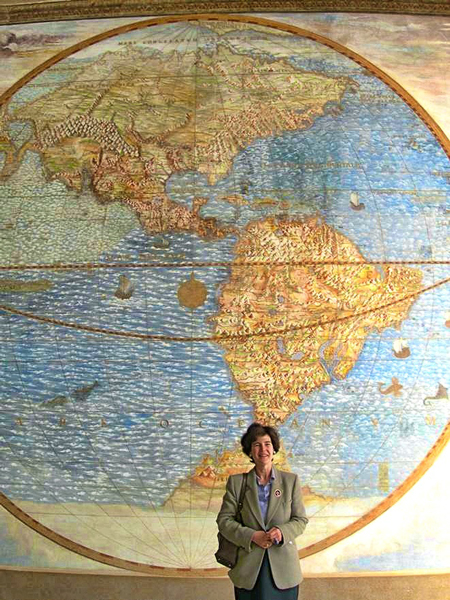
Spent four years as Canadian Ambassador to the Vatican
By Neale McDevitt
There are plenty of critics who will tell you that the Catholic Church is outdated and is no longer relevant in modern society. Don’t tell that to world leaders, says Anne Leahy, who will teach CATH340 Catholic Social Thought in the upcoming winter semester.
“Pope Francis became Pope on March 19 and by Oct. 15, 40 world leaders had come to Rome to meet him,” she says. “And that doesn’t include heads of the United Nation, the World Bank and other important organizations. Even [Russian President] Vladimir Putin came to see him recently.
“They pay attention to what he says because they know he has a great influence over more than 1.2 billion Christians around the world,” she says.
And Leahy knows a thing or two about world leaders. She’s coming to McGill from a long and successful career as a diplomat in which she served as Canadian ambassador to numerous countries including Poland, Russia, Chad, Cameroon, Armenia, Uzbekistan and Belarus.
But for the purposes of her upcoming course, available to both Arts students and those in the Faculty of religious Studies, Leahy will be drawing heavily upon her four-year stint as Ambassador to the Holy See [the Vatican], a post she held from Sept. 2008 until her retirement this past spring.
“I saw from inside how the Vatican works, and how Rome views global issues,” she says. “For example, a big issue in Rome is migrants coming from Africa to try and make a new life in Europe. It is very controversial and there is a lot of pushback from people. This is exactly the kid of question that finds its answer in Catholic social thought.”
Code of conduct
The course outline says Catholic social thought is “the body of Catholic teachings that pertain to the social, economic and political world. They cover every possible aspect from ethics in the financial system to intergenerational solidarity. They are meant to guide Catholics in their everyday life but are also addressed to all people of good will.”
“It’s all about how a normal person should behave, at work, at home, etc., says Leahy. “A moral code of values.”
But this code of values can be – and, according to the Vatican, should be – applied to all human endeavors. In recent years, Popes have offered their opinions (and exerted their influence) on many global issues, always using Catholic social thought as their point of reference.
Leahy points to any number of issues in which the Vatican has taken a strong stance based upon the teachings of the Church, including combatting human trafficking, pushing for ethical business practices, and promoting the benefit of genetically modified organisms to help crop production in areas of the world where people are starving. “When Pope Francis speaks about the duty to take care of refugees who wash up on the shores of Italy, people take notice. They listen,” says Leahy.
The People’s Pope
Leahy, who worked primarily with Pope Francis’ predecessor, Pope Benedict, says the former has helped rejuvenate the Papacy.
“Pope Benedict was a professor who spent most of his life at university or at the Roman Curia. He had a certain style,” says Leahy. “But Pope Francis was a pastor in Buenos Aires who was ministering to the people every day. He’s got street smarts,” noting that Francis, often called The People’s Pope, has just been named Time magazine’s Person of the Year for 2013.
“Pope Francis already he has made an impact by bringing the teachings of the Church directly to people around the world and not just to Catholics. He has jumped the barriers. He has gone right in your living room,” she says.
